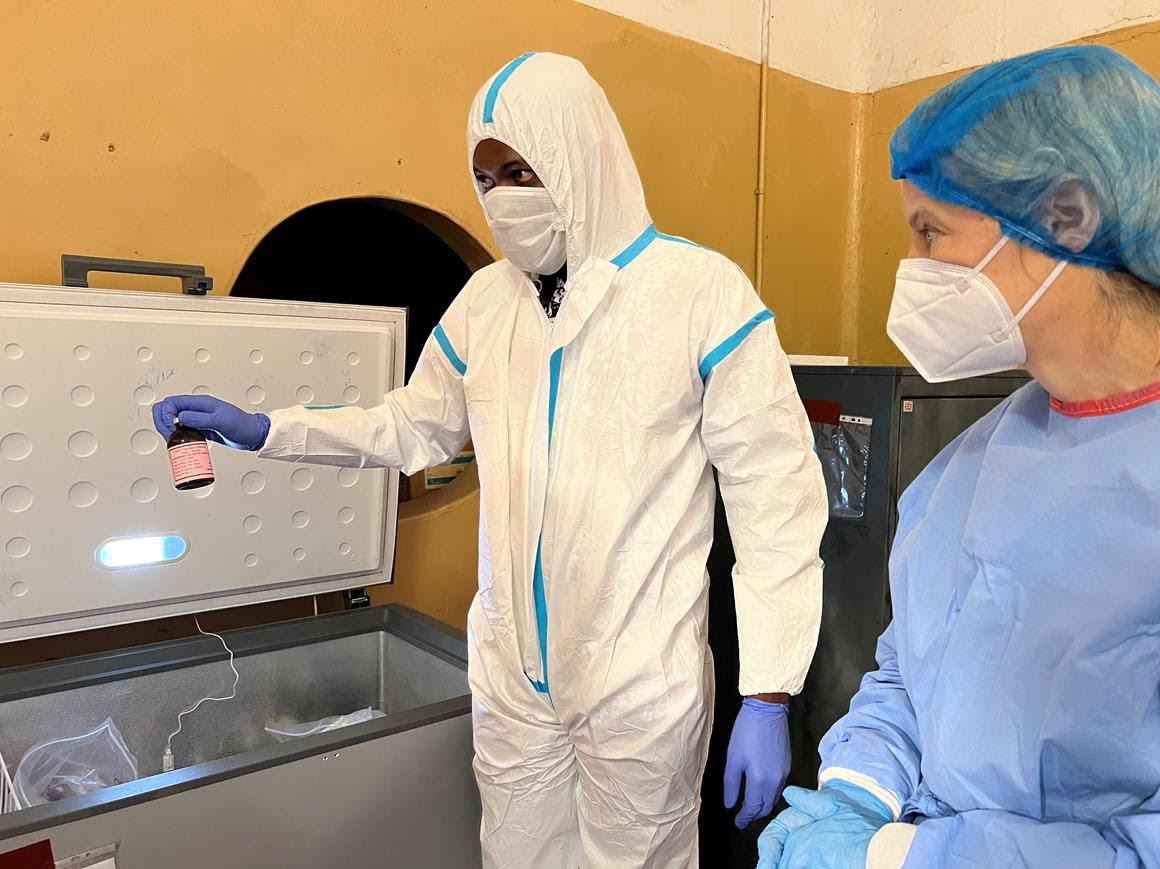
The United States Government, through the United States Agency for International Development (USAID), is donating 100,000 doses of the anthrax vaccine in support of the Government of Ghana and the U.N. Food and Agriculture Organization’s (FAO) anthrax vaccination campaign.
The campaign is expected to cover about one million animals across the five regions of the north.
“Anthrax not only threatens human life. When it destroys livestock, it also threatens economic prosperity and food security,” said USAID/Ghana Mission Director Kimberly Rosen during the launch.
Before the launch event, Ms. Rosen and partners from FAO toured the Vaccine Production Unit of the Central Veterinary Laboratory in Pong-Tamale. In support of domestic manufacturing capacity, USAID recently purchased 100,00 anthrax vaccines from the Central Veterinary Lab to donate to the anthrax vaccination campaign.
“During our tour of the Central Veterinary Laboratory this morning, it was clear that with some automation and more investment, the lab could produce larger quantities of vaccines to meet the national market and also be exported. More vaccines means healthier animals, safer humans and potential revenue and job creation for the Veterinary Service Department,” she added.
Anthrax is a serious, potentially life-threatening infectious disease that is passed from animals to humans. Vaccination campaigns of animals like cattle, sheep, and goats, prevent the disease from occurring in animals, reducing the risk of transmission to humans.
 Head of the Vaccine Production Unit of the Central Veterinary Laboratory, in Pong-Tamale, showing USAID/Ghana Mission Director, Kimberly Rosen an anthrax vaccine vile during a tour of the lab.
Head of the Vaccine Production Unit of the Central Veterinary Laboratory, in Pong-Tamale, showing USAID/Ghana Mission Director, Kimberly Rosen an anthrax vaccine vile during a tour of the lab.
In May 2023, Ghana experienced an outbreak of anthrax, affecting six districts in the Upper East Region. A total of 97 animals died from the anthrax outbreak.
Thirteen suspected human anthrax cases were detected, including one death. The Government of Ghana and its partners worked quickly to contain the outbreak. To prevent future outbreaks, yearly animal vaccination is recommended.